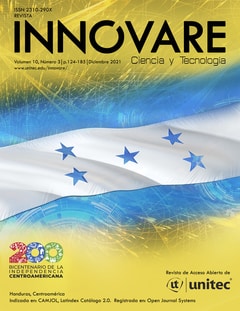The gamification of philosophy for meaningful learning in higher education
DOI:
https://doi.org/10.5377/innovare.v10i3.12986Keywords:
Meaningful learning, Higher education, Gamification, TICsAbstract
Introduction. With the impact of the COVID-19 pandemic, higher education institutions had to become more dynamic, to transform the face-to-face course in its traditional model towards an online course or distance mode, without changing the student-centered pedagogical model. This article documents the gamification of the philosophy course to get meaningful learning proposed by David Ausubel. Presentation of experience. It is implemented from a game program where the user interacts and plays while learning about the concepts found in each of the levels of the game. The software was developed using the Programming language (high level) C ++ version C ++ 17, using Visual Studio 2019 as an integrated development environment “IDE” in the epistemological unit of the philosophy class. Discussion. To implement the gamification of philosophy, collaboration between the engineering faculty with the Programming Lab III class and the administrative and social sciences faculty with the General Philosophy class is required. Conclusion. The gamification of a course implemented in tele-teaching contributes to meaningful student learning. Collaboration between faculties favors the interdisciplinarity of the teaching-learning process. A student-centered type of teaching arouses greater assimilation and interest, as the student transitions from a passive role to a leading role. The students show greater interest and importance of the pedagogical space, such as the development of competences, among others, the capacity for analysis and critical thinking.
Downloads
1596
Published
How to Cite
Issue
Section
License
Copyright (c) 2021 Juan Carlos Zepeda, Melvin Alexander Cantarero

This work is licensed under a Creative Commons Attribution-NonCommercial-NoDerivatives 4.0 International License.




